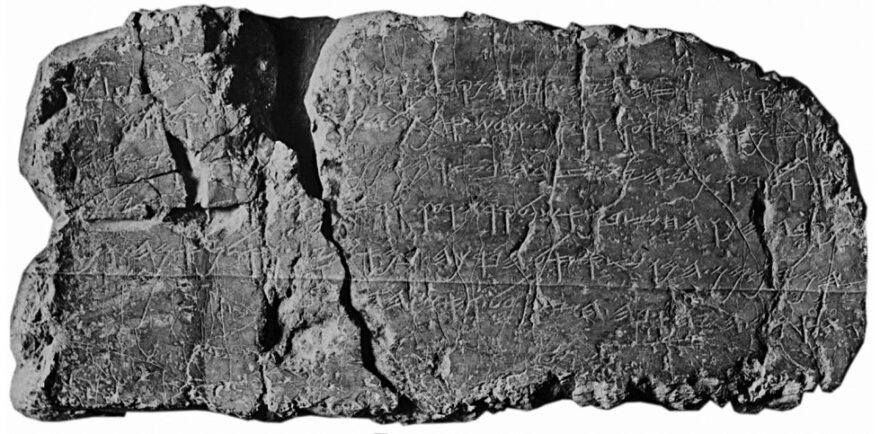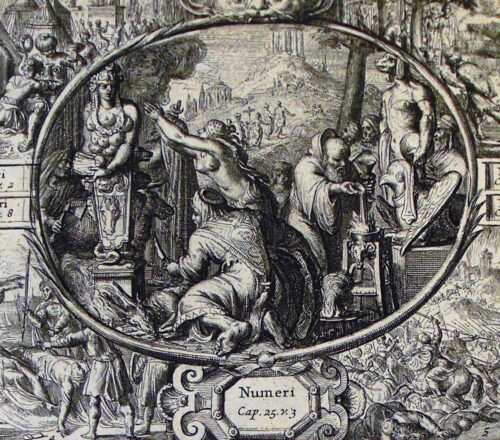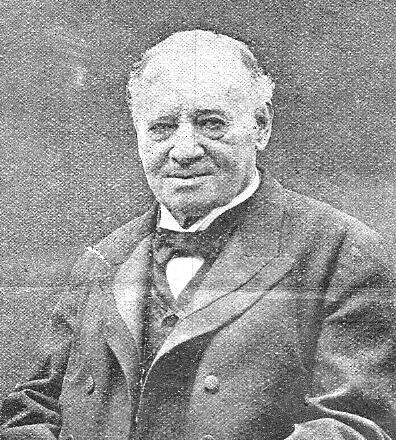INFAMOUS: The Story of the Siloam Inscription’s Discovery
This episode promises to weave together the lesser-known connection of Moses Shapira with one of Jerusalem’s most ancient treasures, the Siloam Inscription, and the poignant story of a young boy whose discovery in 1880 leads to an adoption by the Spafford family, known for their tragic narrative and enduring faith. Explore the fascinating intersections of history, tragedy, and discovery as we delve into Shapira’s unrecognized contributions to deciphering the Siloam Inscription, alongside the heartrending journey of Horatio Spafford. His loss in a catastrophic shipwreck inspired the creation of the beloved hymn, “It Is Well With My Soul,” a testament to finding peace amidst despair. But what binds these seemingly disparate stories together? How does a boy’s accidental discovery in a dark tunnel connect to a narrative of loss, faith, and scholarly pursuit? Join us for an episode filled with intrigue, history, and the enduring human spirit, as we uncover the connections between ancient inscriptions, personal tragedy, and the unacknowledged insights of Moses Shapira. Don’t miss this enthralling exploration of Jerusalem’s oldest inscription and the stories that intertwine with its discovery.





What is wrong with asking “what sin have I committed” when horrible things happen to us or our kids? Without judgment for anyone else at all, if my own children were killed in the same manner as this guy or like Job’s were, I think it is wise to ask that question. Why? Because the Tanak has promises that are being ignored if we don’t. It’s like reading a promise and not believing it bc we’re unwilling to be brutally honest with ourselves. IOW, before I believed we were to obey Torah, I probably would not have questioned “what sin have I committed” if I got a cancer diagnosis. But now that I know Yah’s promises of health, if I ignore His words then I am sinning. In fact, I was sinning for 50 years. I would have deserved cancer because I was sinning. That question would be appropriate would it not?
Hi Marilyn,
Thank you for your question.
“Eloha stores up the iniquity of the wicked for his sons? Let Him repay the wicked, so that he, himself will experience it! Let his own eyes see his destruction; let him drink the cup of the wrath of Shadai. For what does he care about the house he leaves behind when his allotted months come to an end?” – Job 21:19-21
Job replies to his companion’s assertion that God punishes successive generations for their father’s iniquity. He protests the claim, demanding that God should instead punish the wicked directly. He asserts that such a strategy of deterrence is defective, “for what does he care about the house he leaves behind when his allotted months come to an end?”
For millennia people have struggled with the concept of divinely governed, trans-generational punishment. As Abraham said in Genesis 18:25, “Far be it from You to do such a thing, to kill the righteous with the wicked, so that the righteous and the wicked are treated alike. Far be it from You! Shall not the Judge of all the earth deal justly?”
Yet the Ten Commandments, the text upon which the entire bible is based, in both Exodus and Deuteronomy, begins with such a warning.
Four Passages:
The prohibition of idolatry in the opening of the Decalogue in Exodus chapter 20 includes the following caveat:
“I Jehovah thy God am a jealous God, visiting the iniquity of the fathers upon the sons, upon the third, and upon the fourth generation of them that hate me”
Deutueronomy concurs,
“I, Jehovah, thy God, am a jealous God, visiting the iniquity of the fathers upon the sons, and upon the third, and upon the fourth generation of them that hate me.”
Numbers 14:18 elaborates:
“Jehovah is slow to anger, and abundant in lovingkindness, forgiving iniquity and transgression; and that will by no means clear the guilty, visiting the iniquity of the fathers upon the children, upon the third and upon the fourth generation.”
And Exodus 34:6-7 further embellishes:
“…Jehovah, Jehovah, a God merciful and gracious, slow to anger, and abundant in lovingkindness and truth; keeping lovingkindness for thousands, forgiving iniquity and transgression and sin; and that will by no means clear the guilty, visiting the iniquity of the fathers upon the children, and upon the children’s children, upon the third and upon the fourth generation.”
This caveat is often referred to as an example of ‘transgenerational retribution’ or ‘vicarious punishment’ (Brettler, Jewish Study Bible). The idea being that the subsequent generations of the individual who commits this particular iniquity will suffer divinely imposed detriment as a result. In short, God punishes the innocent for the sins of their father, grandfather, and/or great grandfather.
As echoed by Job and Abraham, it hardly seems fair. And they are not alone, these four passages are blatantly contradicted by other passages within the Tanakh.
Four Counter Passages:
While there are several passages peppered throughout the Tanakh stating that God will “give every man according to his ways, according to the fruit of his deeds” (Jer 17:10, see also Job 34:11,Isaiah 59:18, Nahum 1:2-3, Jeremiah 32:19, Ezekiel 33:20, Psalm 62:12, Proverbs 24:12), it is Deuteronomy 7:9-10 that explicitly limits divine retribution to the transgressing individual:
“Know therefore that the Lord your God, He is God, the faithful God, who keeps His covenant and His faithfulness to a thousand generations for those who love Him and keep His commandments; but He repays those who hate Him to their faces, to eliminate them; He will not hesitate toward him who hates Him, He will repay him to his face..”
More precisely, Deuteronomy 24:16 (see also 2 Kings 14:6 & 2 Chron 25:4) further asserts:
“The fathers shall not be put to death for the sons, neither shall the sons be put to death for the fathers: every man shall be put to death for his own sin.”
Jeremiah 31:29-30 sides with Job’s protest and speaks of a future time when the people of Israel will know better:
“In those days they shall say no more, The fathers have eaten sour grapes, and the children’s teeth are set on edge. But every one shall die for his own iniquity: every man that eateth the sour grapes, his teeth shall be set on edge.”
And in Ezekiel 18:1-20, referencing the same proverb, emphasizes in significant detail that the transgressor is, and always has been, accountable for their own sin:
“What do you mean by repeating this proverb concerning the land of Israel, ‘The fathers have eaten sour grapes, and the children’s teeth are set on edge’? As I live, declares the Lord God, this proverb shall no more be used by you in Israel. Behold, all souls are mine; the soul of the father as well as the soul of the son is mine: the soul who sins shall die.”
One may imagine the prophet proclaiming the latter to the people and the people, perplexed, emphatically responding, “but in the first commandment did not Jehovah tell us that He visits the iniquity of the fathers upon sons to the third and to the fourth generation?!”
The Moses Scroll Solution:
Putting aside the impossible challenge of reconciling the discussed passages let us turn to another text, that of the Moses Scroll discovered in the Wadi Mujib, by the Dead Sea, in 1865. The Moses Scroll is a proto-Deuteronomy. Most of its contents are represented within Deuteronomy not excluding the passage in question but with some significant variation. In the Moses Scroll, the caveat is not attached to the first commandment’s prohibition against idolatry, but rather the seventh commandment as it appears in the document.
Elohim declares:
“You shall not swear by My Name to deceive. For I will avenge the iniquity, fathers unto sons unto grandsons and unto great grandsons, for lifting My Name to deceive. I am Elohim your God.”
לא תשבע • בשמי • לשקר • כי • אנך • אקנא • את עון • אבת • על • בנם • על • שלשם • ועל • רבעם • לנשאי • שמי • לשקר • אנך • אלהם • אלהך
While the mind of one familiar with the Pentateuch may gravitate to the traditional interpretation of the text, allow me to offer an alternative. The phrase “fathers unto sons, unto grandsons, and unto great grandsons” does not pertain to the target of Elohim’s avengement but rather is descriptive of the iniquity. In other words, fathers deceiving impressional successive generations is bad enough but to do so while endorsing the deception with the name of Elohim is an infringement He assures He will avenge. This interpretation further concurs with the corresponding blessing and curse allotted to each commandment within the Moses Scroll:
“Blessed is the man who does not lift My Name to deceive”
“Cursed is the man who lifts My Name to deceive”
Here we see that the curse is limited to “the man”, alone, who commits the iniquity rather than, as Job put it, stored up for the children of the wicked. In other words, and as Exodus 20:7 and Deuteronomy 5:11 puts it, “…for the Lord will not leave him unpunished who lifts His name for falsehood.”